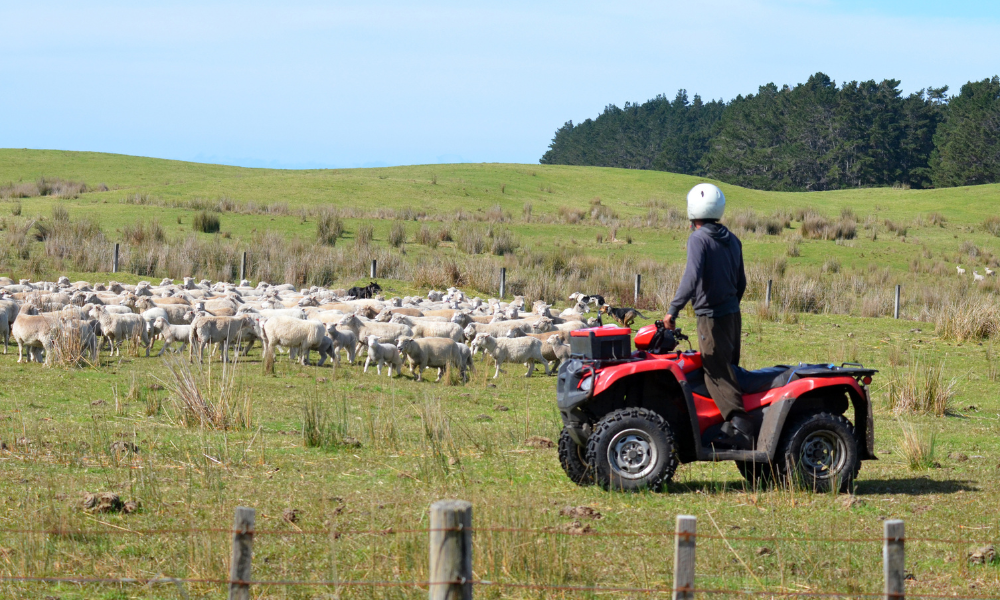This continues the downward trend in the number of farm sales across New Zealand

Farm sales have plunged 48.6% to 237 for the three months ended April compared to the 461 farm sales in the same period the prior year, new data from the Real Estate Institute of New Zealand (REINZ) showed.
The latest figure was also down -0.4% compared to the 238 farm sales recorded for the three months ended March 2023.
In the year to April, farm sold numbered 1,208 – that’s 566 less than were sold in the year to April 2022, with 37.5% less dairy farms, 10.6% less dairy support, 21.2% less grazing farms, 30.2% less finishing farms, and 35.9% less arable farms sold over the same period.
The median price per hectare for all farms sold during the April quarter was $30,330, up 3.3% compared to $29,355 posted for three months ended April 2022. The median price per hectare rose 2.1% month-on-month.
The REINZ All Farm Price Index fell 0.5% in the three months to April compared to the three months to March. Compared to the three months ending April 2022, the index dropped 8.1%.
Unlike the median price per hectare, the REINZ All Farm Price Index adjusts for differences in farm size, location, and farming type.
All regions posted a drop in the number of farm sales for the three months ended April, with Auckland being the most notable, with two sales less, and Wellington, with seven sales less. Southland and Northland saw the biggest declines in sales, with less 31 and less 30 sales, respectively. Compared to the three months ended March, four regions recorded a jump in sales, the most notable being Canterbury, with six sales more, and Taranaki, with two sales more.
Shane O’Brien (picture below), REINZ rural spokesperson, said the sales levels for April were consistent with the preceding three months and were widely anticipated after a continued downward trend in the number of farm sales across New Zealand since the start of the year.

“Sales volumes are down on previous months across all parts of New Zealand; however, a slightly lower drop is evident in the South Island regions,” O’Brien said.
“As has been stated previously, the demand for land for timber and carbon has reduced on the back of the recent policy announcements by central government and the fall in the New Zealand unit price for carbon and we believe this is likely to remain for much of 2023.
“The recent reduction in the Fonterra farmgate price to a mid-point of $8.30 has seen many buyers concentrate on current farm performance and are not looking at further acquisitions. On farm inflation, costs in areas such as fuel, fertilizer, and labour are also impacting buyer decisions.”
He added that farmers were very concerned about the outcome of this year’s general election and the unknown impact this will have on farming compliance and regulatory requirements, with many of those who have been active in the market “now adopting a wait-and-see approach.” This was evidenced by the reduction in the number of listings of properties for sale and the corresponding lower number of confirmed sales.
It was important to note, however, that the farm values continued to hold steady across most regions, highlighting continued confidence in the farming sector.
In a nutshell, O’Brien said purchasers are willing to pay for the right property that suits their requirements, with abundant sales evidence indicating prices were consistent with 2021 and 2022, particularly in the quality arable, dairy, and dairy support sectors.
In the three months ended April, 32% of all farm sales consisted of grazing farms, 24% finishing farms, 17% dairy farms, and 10% dairy farms, with all four property types accounting for 83% of all sales during the April quarter, REINZ reported.
Use the comment section below to tell us how you felt about this.



